PREFACE
The rate of development in the first six years of a child’s life is more rapid than at any other stage of development. Research in neuroscience confirms the Importance of the early years in a child’s life. since a major part of brain development takes place by the time a child is six years of age. Research further indicates that the development of brain is influenced not only by health, nutrition and quality of care but also by the quality of the psycho-social environment the child is exposed to in these early years. While the importance of early years is appreciated, it has been observed that most of the ECCE programmes are not developmentally appropriate for this age group. Lack of quality ECCE programme has resulted in either a low-quality programme or making ECE as a downward extension of the primary stage curriculum.
The National ECCE Curriculum Framework 2014 emphasises the importance of Inclusion as an inbuilt and inherent component of the ECCE programme. The basic premise of inclusive education is that all children should get equal treatment; the ECE classroom should be bias free; and these should be sensitive and responsive to the special needs of children. including training of ECCE teachers and caregivers in identification of needs of the children with disabilities, use of age-appropriate play and learning materials, making adaptations in the physical environment and counselling of parents.
The ECCE programme needs to ensure ‘holistic development of the child and reflect the inseparable nature of care and education by comprehensively addressing the need for care, nutrition, health and well being of young children. At the same time, parent counselling and education that supports the development of all domains is very crucial.
Thus, it is important to implement the ‘holistic development approach which provides interrelated activities covering all domains of development.
Pioneers in early childhood education suggest that age and developmentally appropriate early childhood theme-based programmes have the highest scope in preparing children for lifelong learning. A high quality ECCE programme helps to foster young children for success in the later school years. A developmentally appropriate curriculum revolves around themes that take advantage of children’s natural curiosity, experiences, issues and problems.
Simple themes like Me and My friends, My body, My family, Plants, Animals, Transport, Water etc are ideal for ECCE. These themes should


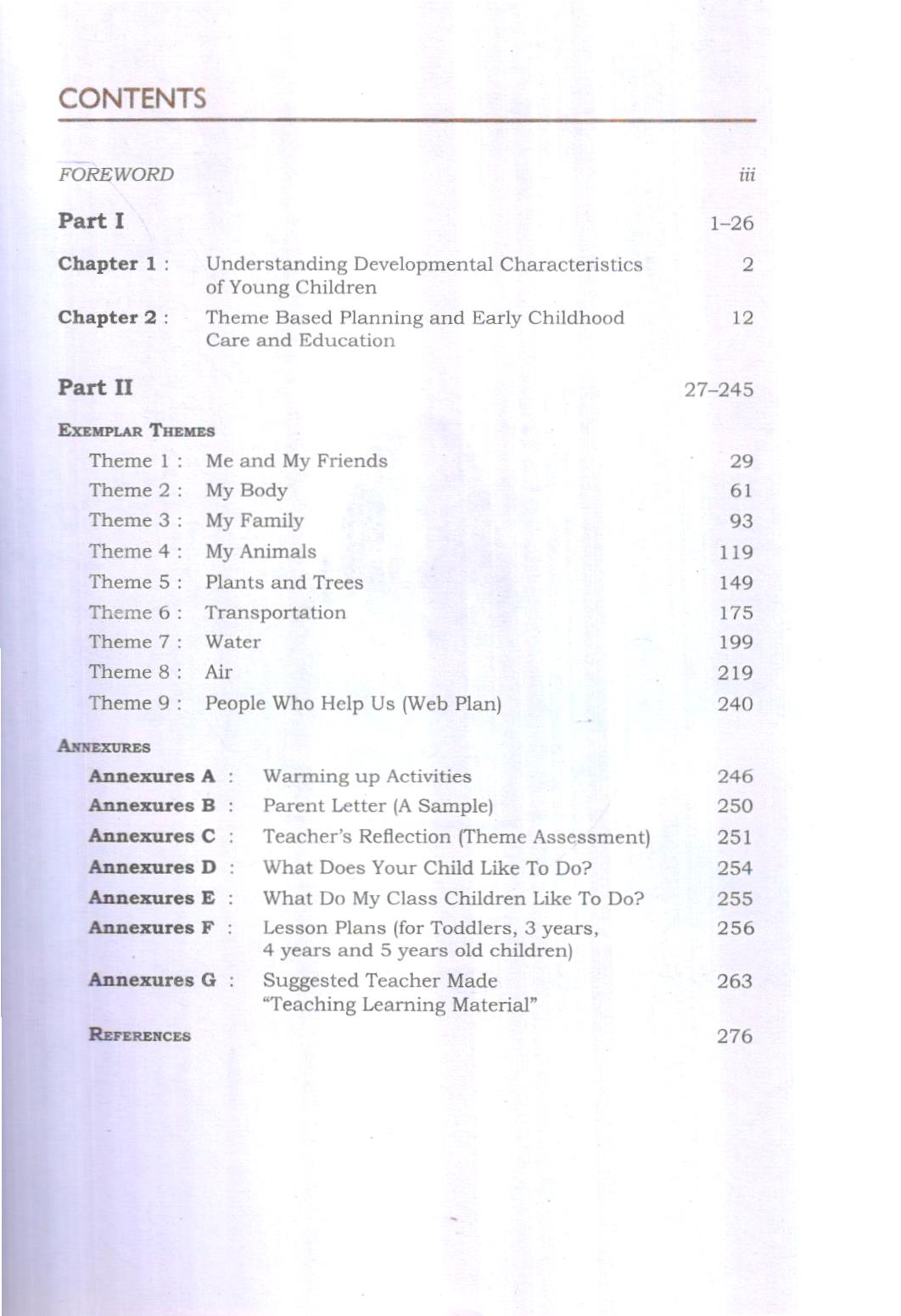
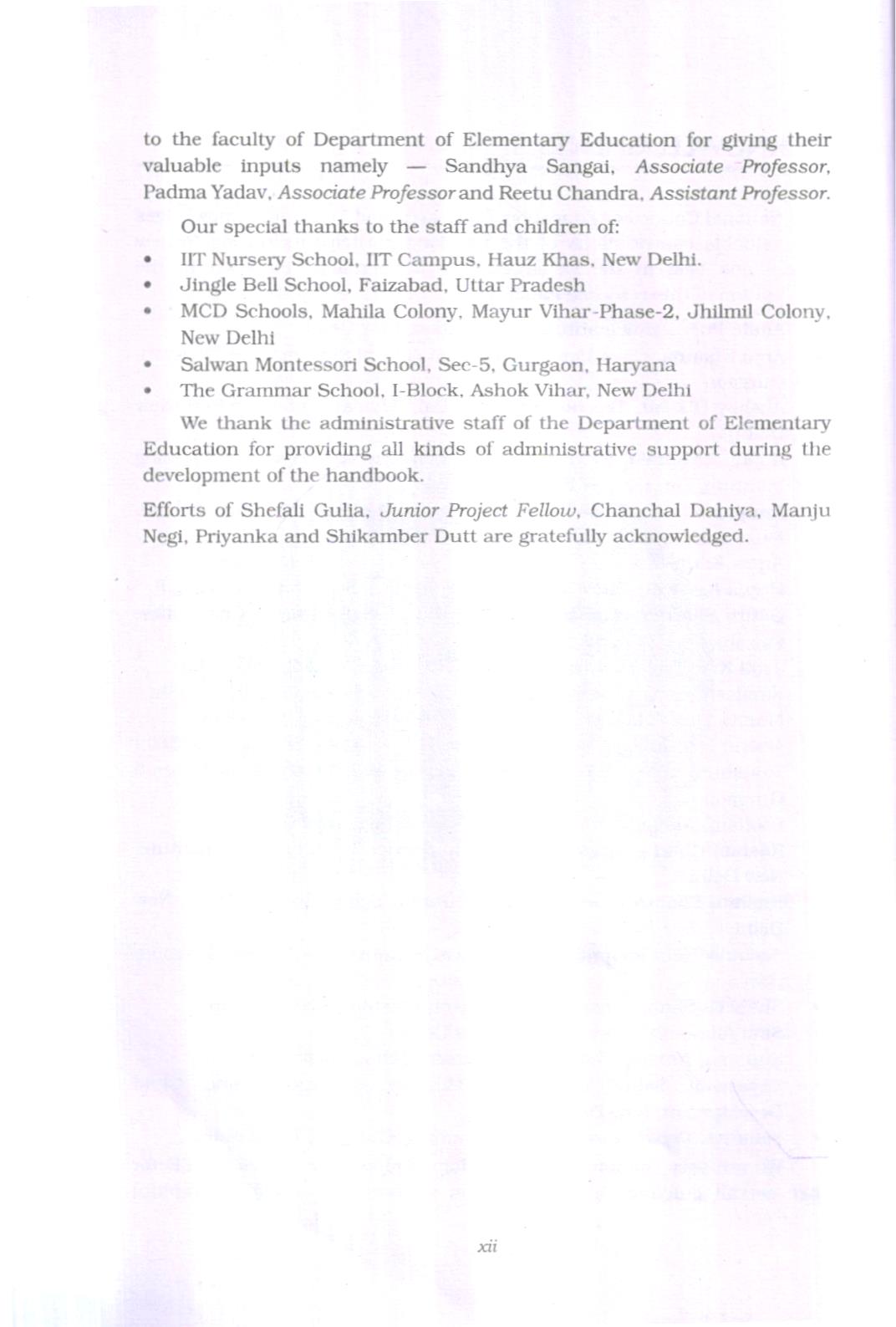
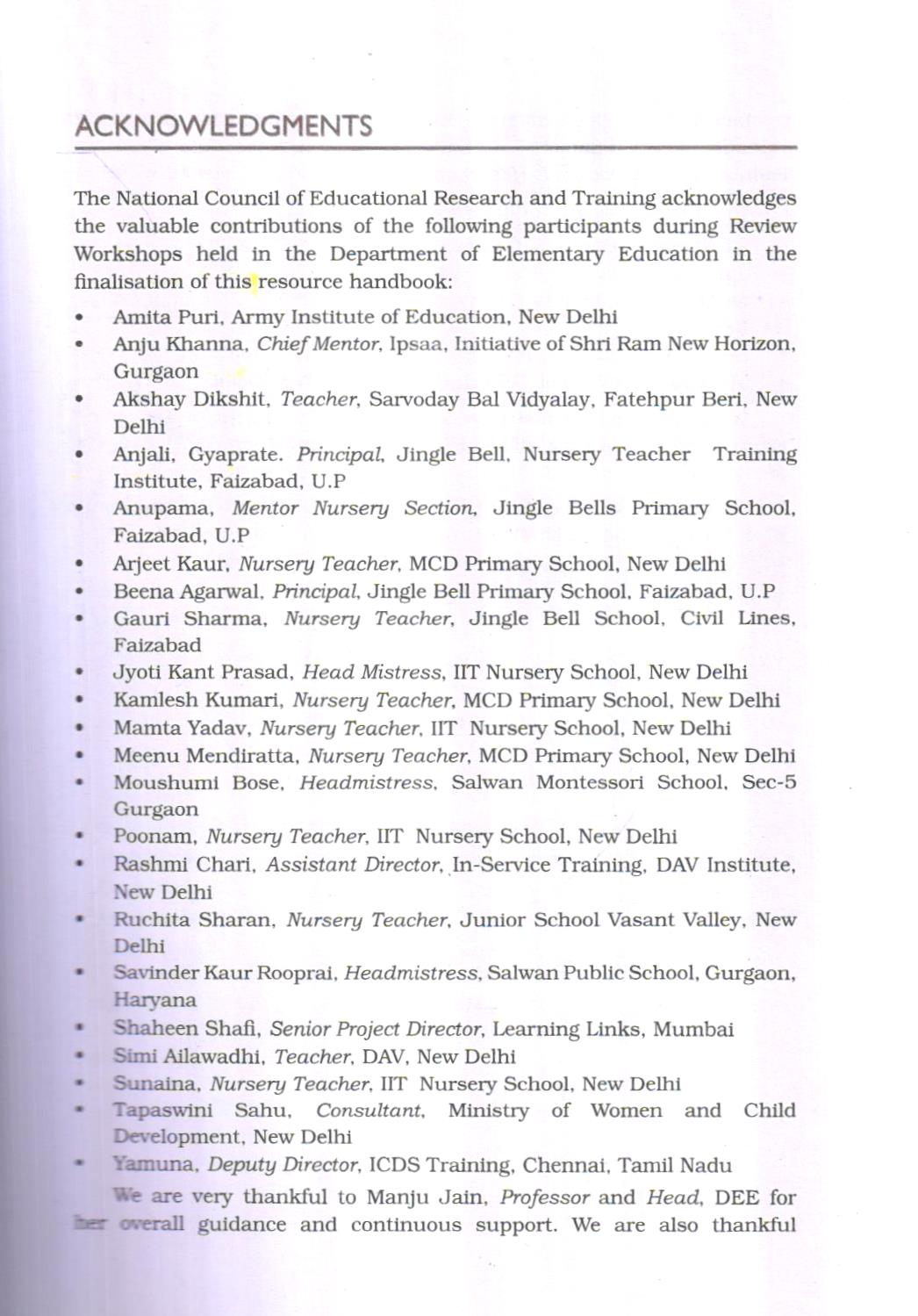
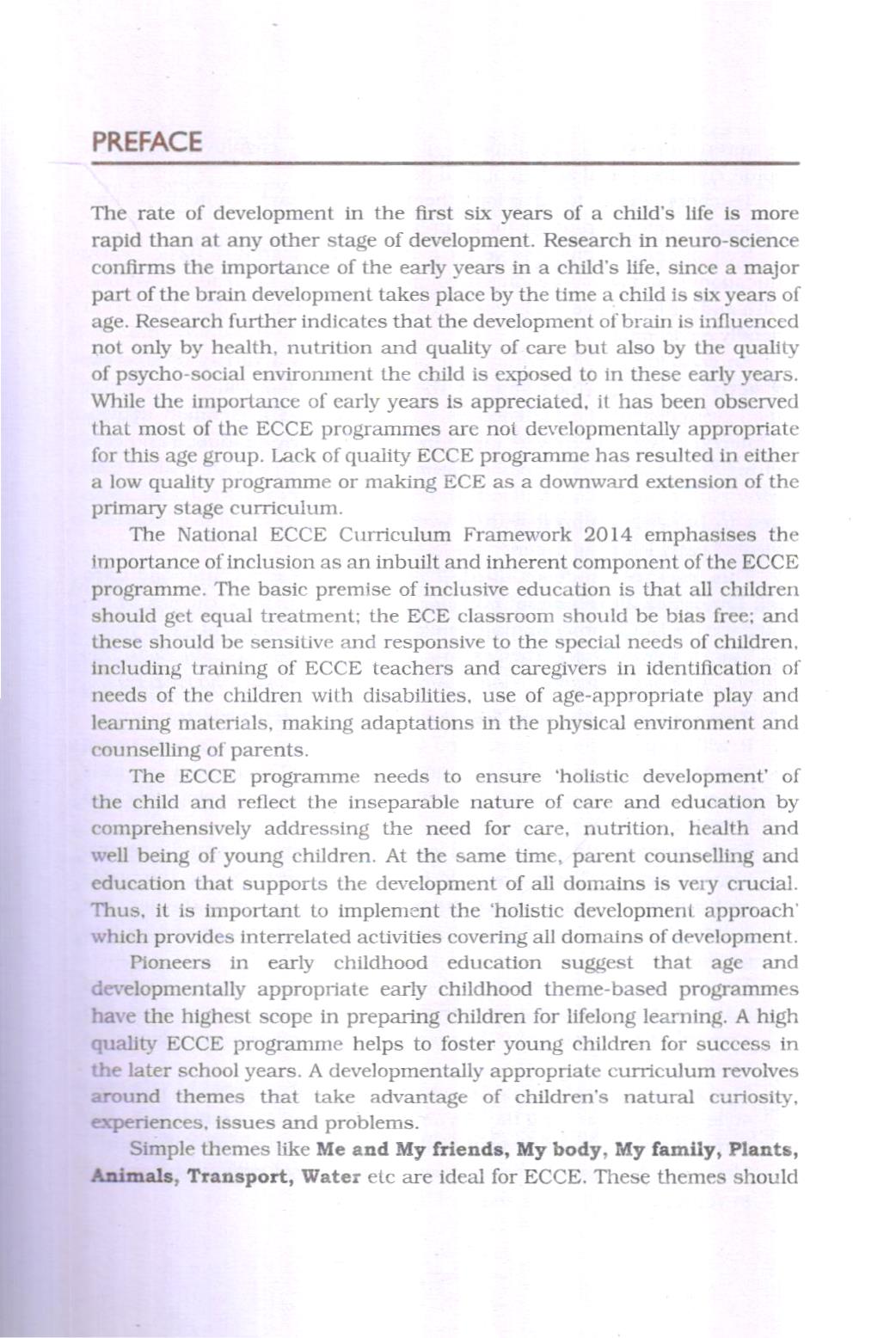

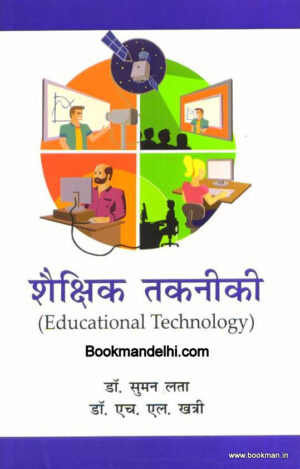



Reviews
There are no reviews yet.